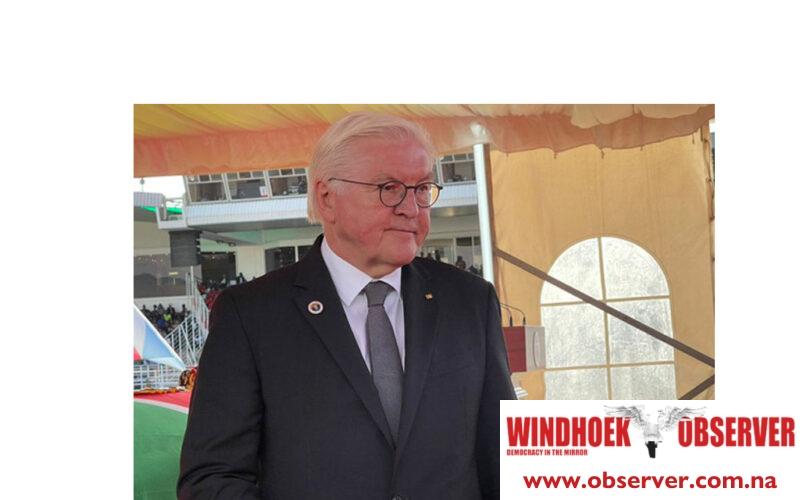Niël Terblanché
In a solemn commitment to reconciliation, German President Frank-Walter Steinmeier, has publicly voiced the necessity for Germany to extend a formal apology to the Namibian people for the atrocities committed during the colonial era, particularly the genocide of the Herero and Nama communities.
This historic acknowledgment was presented during a memorial service in Windhoek for the late Namibian President Hage Geingob, where President Steinmeier stressed the importance of confronting the dark chapters of the shared history of both countries.
The genocide, a brutal legacy of Germany’s colonial rule in Namibia, resulted in the horrific deaths of more than 80,000 indigenous people.
Forces of the German Empire, in a violent clampdown on indigenous uprisings, fought uneven battles and forced people from their land leading to the death of many because of thirst and hunge addressing compensations and the need for an apology, culminating in 2021 with the German federal government’s formal recognition of the atrocities as genocide.
President Steinmeier’s remarks in Windhoek highlighted the arduous journey towards reconciliation that started nearly a decade ago, acknowledging the progress made and the shared commitment to forge a deeper understanding and healing between the two nations.
He praised President Geingob’s courageous efforts to bridge the chasm created by historical injustices, emphasizing the late president’s role in fostering dialogue and understanding between Namibia and Germany.
Namibia, under German colonial dominion from 1884 to 1915, experienced unspeakable violence and suppression.
The recognition of these events as genocide by the German government marks a critical step towards acknowledging and addressing the pains of the past.
President Steinmeier’s hopeful outlook on returning to Namibia under different circumstances reflects a sincere desire for healing and a path rooted in mutual respect and acknowledgement of historical truths.
The willingness of Germany to confront and apologize for its colonial past with Namibia sets a precedent for how nations can address historical injustices.




